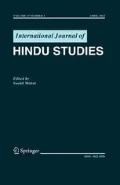References cited
Chasseguet-Smirgel, Janine. 1984. Creativity and perversion. New York: W.W. Norton.
Edelman, Gerald M. 1992. Bright air, brilliant fire: On the matter of the mind. New York: Basic Books.
Edelson, Marshall. 1988. Psychoanalysis: A theory in crisis. Chicago: University of Chicago Press.
Erikson, Erik H. 1962. Young man Luther: A study in psychoanalysis and history. New York: W.W. Norton.
Freud, S. 1911. Formulations on the two principles of mental functioning. Standard edition 12: 215–26.
Freud, S. 1915a. Instincts and their vicissitudes. Standard edition 14: 111–40.
Freud, S. 1915b. Repression. Standard edition 13: 143–58.
Freud, S. 1915c. The unconscious. Standard edition 14: 166–204.
Freud, S. 1916. Introductory lectures on psychoanalysis. Standard edition 16: 240–496.
Freud, S. 1917. On transformations of instinct as exemplified in anal erotism. Standard edition 17: 125–33.
Freud, S. 1919. A child is being beaten. Standard edition 17: 179–204.
Friedrich, Paul. 1975. The lexical symbol and its relative non-arbitrariness. In K. Hale and O. Werner eds., Linguistics and anthropology, 199–247. Brussels: Peter de Ridde Press.
Johnson, Mark. 1987. The body in the mind: The bodily basis of meaning, imagination, and reason. Chicago: University of Chicago Press.
Lakoff, George and Mark Turner. 1989. More than cool reason: A field guide to poetic metaphor. Chicago: University of Chicago Press.
Obeyesekere, Gananath. 1977. Psychocultural exegesis of a case of spirit possession in Sri Lanka. In V. Crapanzano and V. Garrison, eds., Case studies in spirit possession, 235–94. New York: John Wiley.
Obeyesekere, Gananath. 1981. Medusa’s hair. Chicago: University of Chicago Press.
Obeyesekere, Gananath. 1990. The work of culture: Symbolic transformation in psychoanalysis and anthropology. Chicago: University of Chicago Press.
Peirce, Charles Sanders. 1940. Philosophy of Peirce (ed. J. Buchler). New York: Harcourt.
Radin, Paul. 1927. Primitive man as philosopher. New York: D. Appleton.
Shweder, Richard, A. 1991. Thinking through cultures: Expeditions in cultural psychology. Cambridge: Harvard University Press.
Singer, Milton. 1980. Signs of the self: An exploration in semiotic anthropology. American anthropologist 82, 3: 485–507.
Sperber, Dan. 1985. Anthropology and psychology: Towards an epidemiology of representations. Man (n.s.) 20: 73–89.
Sperber, Dan. 1986. Issues in the ontology of culture. In R. Marcus, G. Dorn, and P. Weingartner eds., Logic, methodology, and philosophy of science, 7: 557–71. Amsterdam: Elsevier Science.
Spiro, Melford E. 1993. Tropes, defenses, and unconscious mental representation: Some critical reflections on the ‘primary process.’ Psychoanalysis and contemporary thought 16: 155–96.
Author information
Authors and Affiliations
Additional information
In a tongue-in-cheek comment on the last page of The work of culture Gananath Obeyesekere (1990: 289) identifies himself with this character. The argument in the following essay takes the ‘work’ of culture as its foil, and I want to continue Obeyesekerne’s lighthearted use of the character.
Rights and permissions
About this article
Cite this article
Forsyth, D.W. Ajātasattu and the future of psychoanalytic anthropology. Part II: The imperative of the wish. Hindu Studies 1, 314–336 (1997). https://doi.org/10.1007/s11407-997-0004-y
Issue Date:
DOI: https://doi.org/10.1007/s11407-997-0004-y

